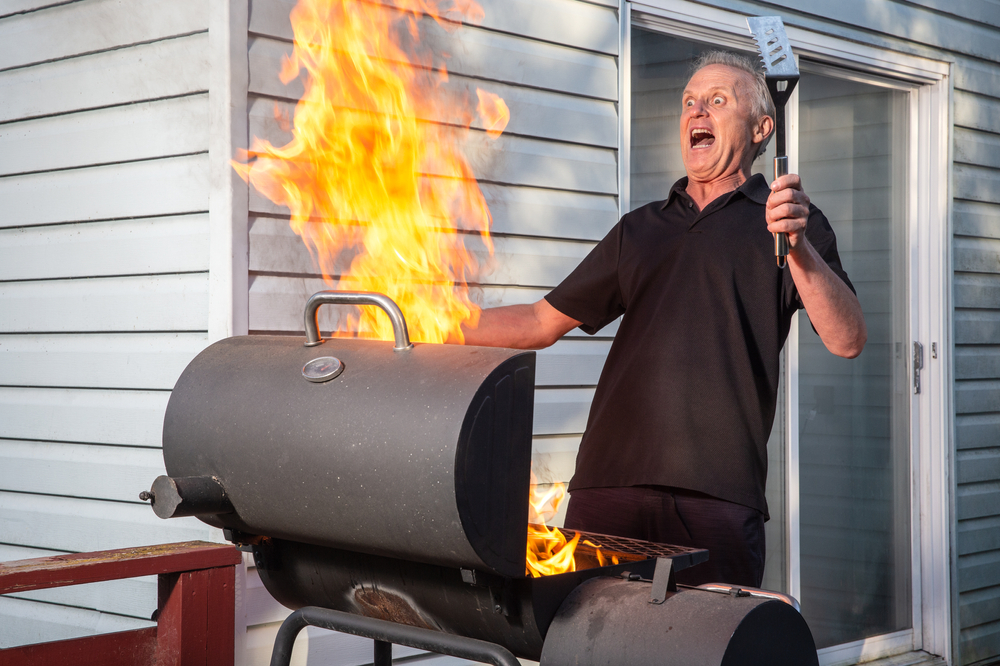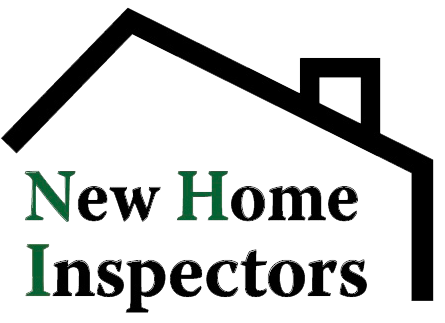
BBQ season is in full swing here on Long Island. When you are out there grilling, are you following smart safety precautions? We all know that barbecued food is delicious, but grilling comes with a bunch of safety hazards.
According to the National Fire Protection Association, July is peak month for grill fires. This includes both structural and outdoor fires. Additionally, children under 5 accounted for 39% of contact burns per year. Contact burns happen when you bump into, touch, or fall on the grill or the hot coals.
As a home inspector on Long Island, I am proficient in inspecting major home systems such as plumbing. But in addition, I am always on the lookout for everyday safety issues-especially those involving fire! Even InterNACHI (International Association of Certified Home Inspectors) has issued safety precautions when using a grill, as it can harm life and property in numerous ways.
Regardless of the grill you use, they all pose risks for fires and burn injuries. However, there are simple guidelines that will help keep your property and your family safe.
10 Recommendations for General Grill Safety
- Make sure the grill is in a safe place away from kids and pets
- Never leave the grill unattended
- Wait until cool to replace cover or store in a garage
- Use flame-resistant oven mitts
- Clean the grill regularly to prevent fat and grease fires
- Do not wear loose clothing while grilling
- If using a lighter, keep it out of reach of children
- Keep alcoholic beverages away from the grill
- Have a fire extinguisher accessible in case of emergency
- Keep the BBQ’s away from the home a safe distance; Melted siding is commonly found on LI because the grill was too close to the house!
These 10 recommendations are just basic safety measures for all grills. As a home inspector, I am acutely aware of fire and its’ hazards to a property and people occupying it. The above tips should be used at all times when operating a grill. Furthermore, they can be applied to anything else on your property containing fire such as an outdoor fire pit or an indoor fireplace.
While the basics are helpful, there are some specifics to different types of grills. Different safety measures should be noted for the different types of grills I see commonly in backyards on Long Island.
Propane Grills
Propane grills are very common. They are relatively simple to operate. Additionally, they provide good flavor without the hassle of using wood or charcoal. Many modern grills and outdoor kitchen grills will use propane.
Unfortunately, propane grills pose an enormous fire hazard. The propane tanks and the grill itself must be properly maintained to avoid any malfunction. Here are some items for propane grill safety:
- Store propane tanks outside and not near any other heat source
- Check your tank for any damage before refilling it, including loose connections (see video below on how to check for leaks)
- Never us a propane grill on a balcony or terrace
- Keep the BBQ lid open when starting it so that gas does not accumulate within the lid
- Always turn the gas off first and then the controls; This ensures there is no gas left in the supply line
- No more than two 20lb. propane tanks are allowed on a residential property
Charcoal Grills
Charcoal grills are great for a nice smokey BBQ flavor. However, they pose a serious carbon monoxide poisoning threat. Additionally, like all other grills, they can be a potential fire hazard. Here’s a list of charcoal grill safety items:
- Never use a charcoal grill inside, even if the area is ventilated
- If using BBQ starter fluid, let the fluid soak the coals for a few minutes before lighting to ensure the explosive vapors have dissipated
- They can be used on patios and balconies, but must be at least 10 feet away from a structure with a water source nearby
- Always let the charcoals go completely out before leaving the grill
- When finished grilling, soak them in water
- Remove cooled ashes after each use
Electric Grills
While electric grills are safer, you still need some safety precautions. Follow these tips when using an electric grill:
- Do not use lighter fluid
- Check that the extension cord is rated for the amperage of the grill
- Position the cord and grill so that the cord is not a tripping hazard
- Unplug and remove the extension cord when not in use
Final Thoughts
As a certified home inspector on Long Island, I am always looking at structures from a safety perspective. Many of the items on a home inspection deal directly with the safety of the home’s occupants, with a large focus on fire safety. Even if you are buying a newly constructed home, an inspection is still recommended to ensure safety, as well as to protect your investment.
Did you know that electrical failures or malfunctions are the leading cause of home fires in 2012-2016? Therefore, even the most common electrical issues in a home should be addressed prior to buying a home. However, these issues can be sought out on a home inspection and repaired by the homeowner to eliminate the risk. With BBQ season, however, these risks are dependent upon the grill you use, who is operating it, the state of the grill, and more. By applying the safety tips listed above, you can mitigate these risks and go on enjoying the rest of your summer!

